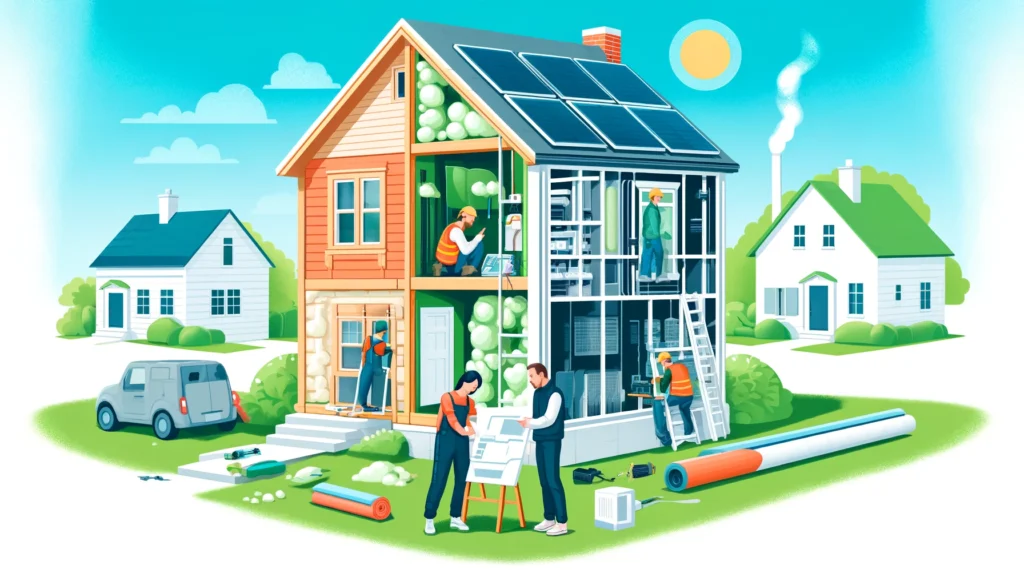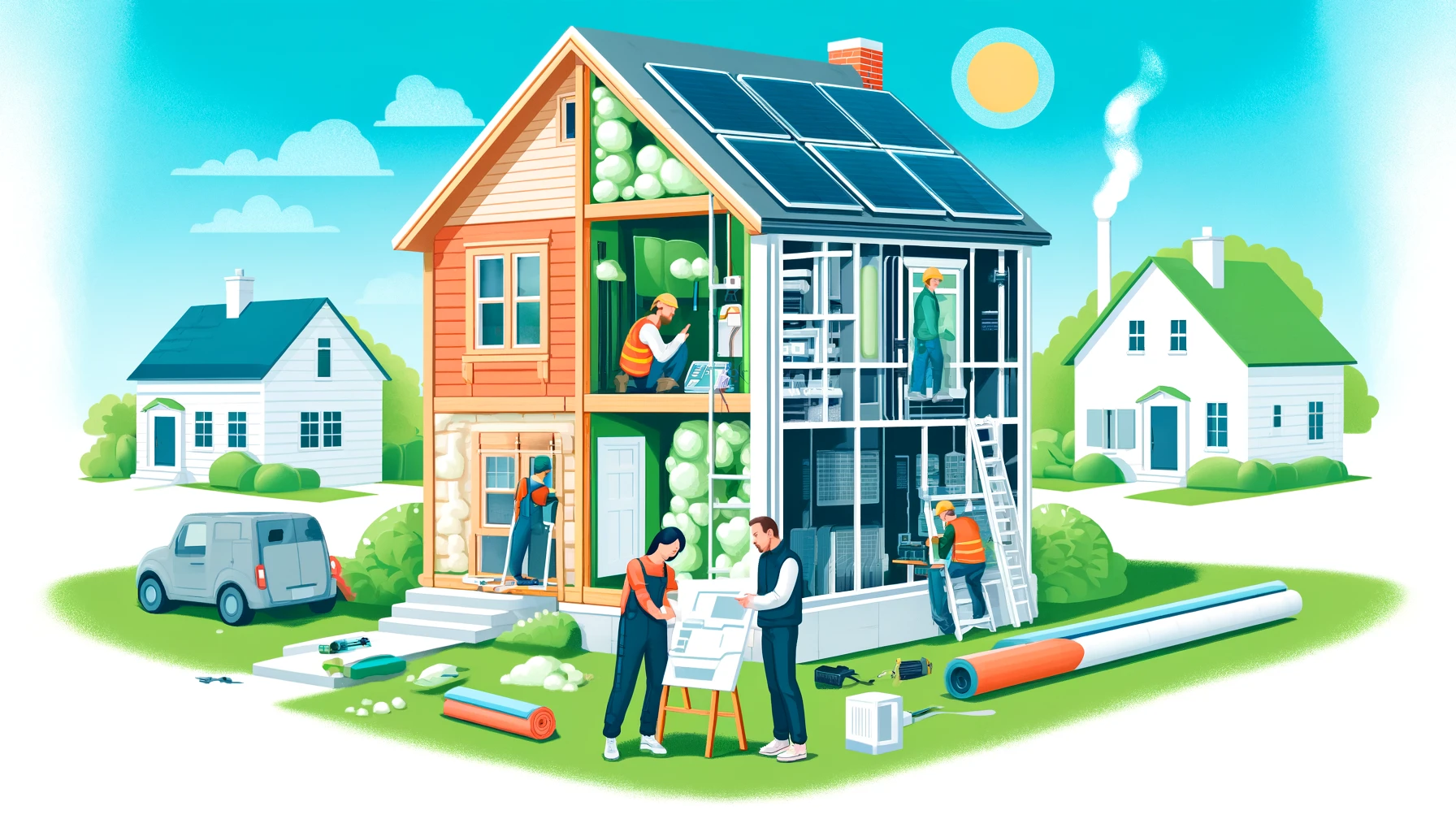“Home Retrofit Loan Scheme, Energy Efficient Homes, Ireland Energy Grants, Low Interest Home Loans, Sustainable Living, SEAI Registered Contractors, Energy Performance Upgrade, EIB Group, Climate Action Plan, Energy Saving, Home Improvement Loans”
“Discover Ireland’s innovative €500 million Home Retrofit Loan Scheme that offers homeowners up to €75,000 in low-interest loans to enhance energy efficiency. This initiative supports energy upgrades in alignment with the Government’s Climate Action Plan, providing financial and environmental benefits. Learn how you can transform your home into a sustainable living space with the support of SEAI registered contractors.”
In a significant move to combat climate change and promote sustainable living, the Government has unveiled a groundbreaking €500 million home retrofit loan scheme. This initiative, designed to facilitate comprehensive energy upgrades in homes, aligns with Ireland’s ambitious climate goals, providing both environmental and economic benefits to homeowners.

Home Retrofit Loan Scheme Overview and Financial Aspects
Starting today, the new scheme allows homeowners to access up to €75,000 in low-interest loans to complement the home energy upgrade grants they receive. Permanent TSB (PTSB) spearheads this initiative, offering loans with interest rates starting at 3.55%. Other major financial institutions like AIB, Bank of Ireland, Avant Money, and several credit unions under the Irish League of Credit Unions are also on board, gearing up to launch their packages soon.
This initiative, a collaborative effort between the Government, the European Investment Bank (EIB) Group, and local financial entities, offers significantly lower rates compared to current market offerings. This advantage stems from the EIB Group’s loan guarantee combined with a Government-funded interest rate subsidy.
Home Retrofit Loan Scheme Eligibility and Implementation
To qualify for this scheme, homeowners must undertake retrofitting projects through contractors registered with the Sustainable Energy Authority of Ireland (SEAI). These approved ‘One Stop Shop’ providers or community project coordinators ensure the retrofitting work meets the necessary standards and helps homeowners navigate both the loan process and available grants.
Notably, the scheme permits up to 25% of the borrowed amount to be used for non-energy-related improvements, such as general home renovations. This flexibility acknowledges that home enhancements often coincide with energy retrofitting projects.
Home Retrofit Loan Scheme Strategic Goals and Benefits
The primary goal of the retrofit loan scheme is to facilitate at least a 20% improvement in home energy ratings (BER). Minister for Environment Eamon Ryan highlighted the scheme’s design, emphasizing simplicity and speed to minimize homeowners’ burden in accessing these financial aids. The scheme is open until December 31, 2026, or until funds are fully utilized.
Noel Rowland, managing director of Churchfield Home Services, praised the scheme’s structure, noting its comprehensive coverage of associated costs, which includes painting and decoration. Such inclusivity ensures homeowners can fully revamp their living spaces alongside energy upgrades.
Impact on Homeowners and Climate Goals
The Government’s Climate Action Plan targets upgrading 500,000 homes to a B2 energy rating by 2030, which includes the installation of 400,000 heat pumps. Minister for Finance Michael McGrath stressed the dual benefits of the scheme: reducing household energy costs and lowering CO2 emissions, which are crucial for meeting Ireland’s climate commitments.
Testimonials from homeowners who have already undergone retrofits, like Maarten Blanken from Dublin, reveal the transformative impact of these upgrades. Blanken noted that his home, post-retrofit to an A3 BER from D2, showed remarkable energy efficiency improvements, underscoring the potential enhancements the new scheme offers.
Concluding Reflections
The home retrofit loan scheme represents a strategic pivot towards sustainable development, offering tangible benefits to homeowners and contributing significantly to Ireland’s environmental goals. By integrating financial solutions with energy efficiency initiatives, the Government not only supports individuals in their transition to greener living but also propels the nation toward a more sustainable future.
This policy not only exemplifies a proactive approach to climate change but also sets a precedent for similar initiatives globally, combining economic incentives with environmental stewardship to facilitate substantial and beneficial changes in energy consumption patterns.
Read More-
